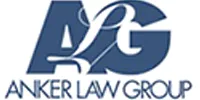- posted: Dec. 30, 2023
A business’ legal structure can significantly affect the owner’s income tax liabilities. With respect to taxes, there are three types of businesses: “Direct taxation,” “pass through” and “double tax.” There are tax advantages and disadvantages for each class of organizational structure.
Direct taxation usually applies to businesses run as sole proprietorships. A sole proprietor is a person who is in business without using a separate entity. The company uses the proprietor’s name or is listed under a “doing business as” (DBA) trade name. With sole proprietorships, there is no legal distinction between the owner and the business. The individual is fully and personally liable for all taxes, including self-employment tax. This is the simplest form of operating a business. There are no significant income tax benefits to operating as a sole proprietor. Any income from the business is added to other income and is taxed accordingly.
Pass through taxation applies to certain types of businesses that are legally separate from the owner(s). The business income only “passes through” the entity as the owners receive distributions of profits and the company does not pay income taxes. It files tax returns, but for informational purposes only. Examples of pass through entities include limited liability companies (LLC), “S” corporations and certain types of partnerships where the owners pay individual income taxes based on their pro rata share of profits earned. A pass through may save on self-employment taxes. The accounting and tax administration burden for pass through entities is moderate.
Double tax businesses are legally LLseparate from the owners for all purposes, including taxation. “C” corporations are the most common, where the entity pays its own income taxes. The individual owners must also pay income taxes on the profits distributed. As profits are taxed at the corporate and individual levels, they are called “double tax” businesses. A C corporation is still a popular legal structure because the company can take tax deductions for business expenses that reduce the overall tax liability. Self-employment tax does not apply to C corporations. A regular C corporation has high reporting and tax administration costs.
Taxation is only one factor to consider when choosing a business structure. There are other important considerations that heavily depend on the nature of the business and the owner’s personal circumstances. It is best to consult a qualified business law attorney for guidance on which entity structure works best for you.
From our Rapid City, South Dakota office, Anker Law Group, P.C. practices business law in and around the metropolitan area. If you are a starting a new business, feel free to contact us online or call 605-519-5967 for an initial consultation.

